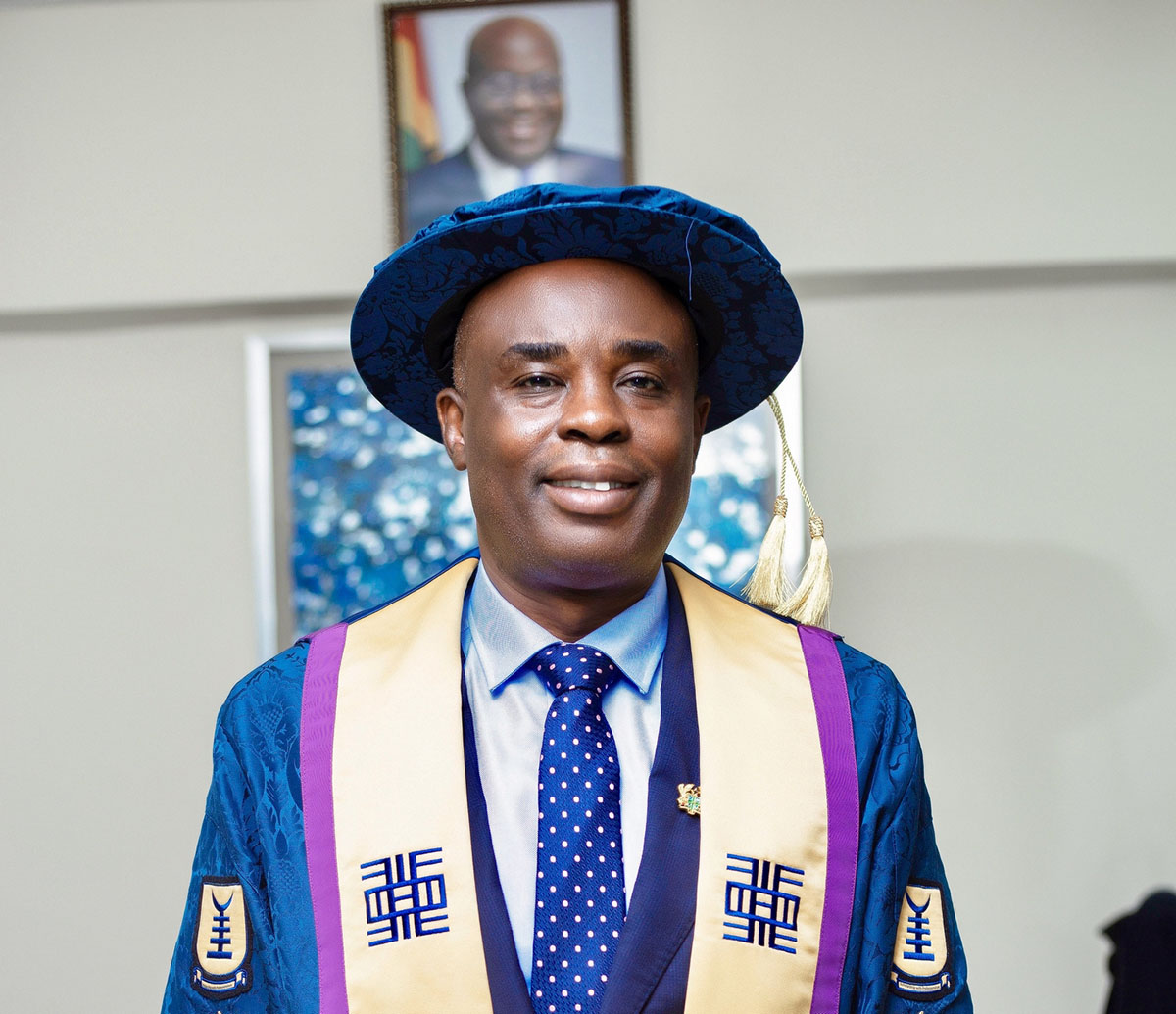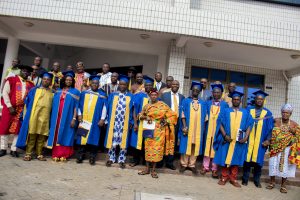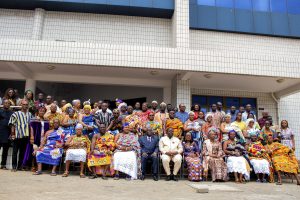The Vice-Chancellor, Prof Abednego Feehi Okoe Amartey, has attributed the seamless transition of teaching and learning unto online platforms to resilient institutional systems, appropriate governance structures, and strong leadership put in place by the Management of the University during the COVID-19 pandemic.
The crisis compelled the closure of all educational institutions in the country but Prof Amartey says the preparedness of his team and their proactive response to the unexpected change mitigated the impact it would have had on the academic calendar of the university.
“I am a firm believer in being forward looking, anticipating changing needs or situations and with my team, predicting their potential impact influence on how we operate,” he says.
He added that this level of preparedness allowed the University to respond to the sudden closure of all educational institutions in a very prompt and structured manner.
“So on March 18, three days after the President of the Republic of Ghana directed that all universities close and deliver learning online, all our courses and programmes had been transitioned online and we resumed classes, offering our students a seamless transition,” he explained.
Prof Abednego Feehi Okoe Amartey made these remarks in an interview with the African Journal of Business and Economic Research (AJBER) which was assessing the impact of the coronavirus crisis and its implications for universities in Africa.
Prof Okoe Amartey opined that leaders are not meant to just manage crisis, but are to also work diligently on building systems and structures that will allow institutions to withstand the many threats that accompany the crisis.
In this regard, he said the University under his leadership, introduced new technologies and employed other educational tools that complemented and deepened the learning outcomes for students, ensuring that the students received an effective and robust learning experience at UPSA.
“We instituted IT systems and protocols for learning [and] we ensured that our students could reach our faculty through WhatsApp, phone, email, and/or other options consistent with the preferred mode of communication of the student,” he told Nnamdi O. Madichie, Former Editor-In-Chief of AJBER.
These and many other interventions infused with flexibility, innovation and agility, the Vice-Chancellor said, has positioned UPSA to continue to stay ahead of the game and to deliver excellent services that enhance the experiences of all stakeholders.
On the future of universities in Africa, Prof Amartey said it was imperative for universities on the continent to embrace the opportunities the Fourth Industrial Revolution present and use that as a springboard to reinvigorating their institutions.
This he said means digital teaching and learning, digital working, digital social relationships and digital networking.
“At UPSA, we are committed to working with our faculty and the rest of the university community on reimagining our future to include a possible permanent transition to quasi-online system, with hybrid, blended learning,” Prof. Amartey revealed.



